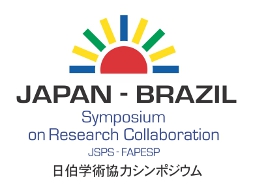Cooperation may stimulate Brazilian research in marine sciences
Lecture about challenges to researchers highlights the little known wealth of the biodiversity of Brazil’s marine environments
By Fernando Cunha, in Tokyo
Agência FAPESP– The main research challenges in marine biodiversity and bioprospecting were outlined by Roberto Berlinck, professor from the São Carlos Chemistry Institute of the University of São Paulo (USP), and described at the Japan-Brazil Symposium on Research Collaboration, jointly organized by FAPESP and the Japan Society for the Promotion of Science (JSPS), March 15-16, in Tokyo.
Within the context of the marine sciences, Berlinck assessed the challenges for increasing Brazilian scientific production in the fields of marine biology and marine biotechnology on the basis of data published in the 2010 SCImago Journal & Country Rank.
Compared to the figures for Japan that remained at roughly 2,500 articles per year between 1996 and 2011, the survey related to Brazilian science produced in the field, shows growth in the same direction, but it is still low, with just over 400 annual publications at the end of the period. “This situation appears ripe for developing collaborative projects between Brazilian and Japanese researchers,” he stated.
To Berlinck, Brazil’s current outlook and needs include an increase in the number of scientists involved in the ocean sciences, adequate investments to support research in this field, and incentives to form new research teams.
On the same list, the researcher includes as priorities the identification of typically Brazilian problems and the greater commitment to the sustainable management of resources and the marine environment.
“Japan’s tradition of interest in research on marine environments may be compared to Brazil’s great interest in the wealth of its terrestrial biomes,” said Berlinck in pointing out the opportunity that exists for cooperation between scientists from the two countries on the marine diversity of the Brazilian coast, still little known along its over 8.5 km.
“Research in biotechnology and biodiversity has increased in Brazil since the late 1990s, but now we need new approaches to investigate local questions and generate science and technology that may also be used for the country as a whole,” he said.
Project coordinator for the BIOTA-FAPESP Program – which for 13 years has supported São Paulo research into the characterization, conservation and sustainable use of natural resources – Berlinck underscored the R$5 million (US$2.5 million) investment made by FAPESP in a recent call for research proposals directed towards understanding the process and impacts of climate changes, bioprospecting by marine organisms and for the development and analysis of educational materials on the subject for elementary and middle school students.
For Berlinck, another important support initiative was the call for proposals published by the National Council for Scientific and Technological Development (CNPq), which allocated R$6 million (US$3 million) in 2009 to support projects for the sustainable use of the biotechnological potential of coastal marine ecosystems and water areas under Brazilian jurisdiction.
According to Berlinck, Brazil still needs to increase the critical mass of researchers in the marine sciences. “In keeping with data from CNPq, there are 645 research teams concentrated in the states of São Paulo, Rio de Janeiro, Paraná, Santa Catarina, and Rio Grande do Sul and in Northeastern Brazil, but there has been a significant decline in the number of taxonomy specialists, which does not help the situation,” he said.
Moreover, the marine environment has become a valuable object for studies throughout the world, since it covers nearly 70% of the earth’s surface and much remains unknown.
“There is a lot to be done in Brazil, both in relation to the recording and understanding of the number of species, as well as the relationships between them. A good example are the coral reefs, where maintenance of environmental health depends on the concentration of CO2, currently increasing due to climate change, which has reduced the fish population,” the USP professor explained.
Collaboration and scientific production
Despite Brazil’s efforts to train researchers and support projects in the marine sciences, Berlinck said that marine biotechnology and bioprospecting are still in their early stages.
“There is a lot of knowledge to be shared with Japan. Very different environments, with a huge potential for the study of organisms with endemic characteristics, specific to the South, or with invertebrate populations similar to those of the Caribbean, in the Northeast, need to be better identified, and Japan has great expertise in this,” he stated.
According to Berlinck, we need to foster discussions to establish collaborative projects between Brazilian and Japanese scientists, and they can begin based on the curiosity about the numerous differences between the environments of the South Atlantic and North Pacific, for example.
The starting point, according to the researcher, may be the sharing of results and diagnostics conducted by initiatives like the REVIZEE Project, supported by Brazil’s Ministry of the Environment, that offered subsidies that guaranteed the country a 200 mile strip of Exclusive Economic Zone (ZEE), which shows that there is still much work to be done by science.







